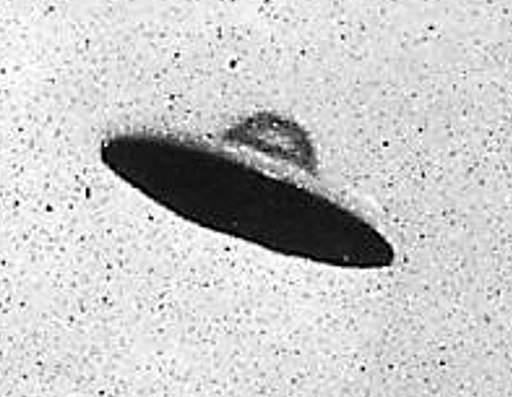What differentiates David Charles Grusch — who claims that the US government has in its possession “intact and partially intact craft of non-human origin” — from previous people making similar claims?
The big and obvious difference is that his back story seems to check out. For purposes of comparison:
Bob Lazar, a celebrity in the “The Truth is Out There” community, claims degrees in physics from MIT and electronics from CalTech. Neither university admits he studied or graduated there. He claims to have worked as a physicist at the Los Alamos Meson Physics facility. The facility says “nope.” He claims to have worked at a UFO research facility near the notorious Area 51, for the US Navy, as a contractor with defense firm EG&G. EG&G says they’ve never heard of him.
Grusch, on the other hand, apparently really is a former US Air Force officer, really did work for the National Geospatial-Intelligence Agency and the National Reconnaissance Office, and really did represent the NRO with the Defense Department’s Unidentified Aerial Phenomena Task Force. Those vouching for him include a retired colonel who also served on the task force, and a current official at the National Air and Space Intelligence Center. He filed at least two “whistleblower” actions (in 2021 and 2022) with the Intelligence Community Inspector General relating to the claims we’re hearing now.
If we discount the possibility that Lazar’s true credentials were disappeared by a Grand Conspiracy to Hide the Truth, he doesn’t look very credible.
Grusch, on the other hand, looks credible indeed … to those who trust the US government.
I don’t trust the US government.
I truly do want to believe that at least some “Unidentified Aerial Phenomena” (aka UFOs) are spacecraft of extraterrestrial origin.
I think there’s an at least mildly convincing circumstantial case for the idea that the post-WW2 technological revolution received assistance from a distance — reverse-engineered technology from crashed/captured alien craft, or even direct, helpful contact from the people who built and piloted those craft.
But to really believe it, I’d need to see real proof, not just claims un-backed by physical evidence, no matter how seemingly credible the source.
My gut feeling about the Grusch disclosures is that we may be seeing a “modified limited hangout” — a term coined by John Ehrlichman in planning the Watergate cover-up, but most concisely defined by Stuart Wexler and Larry Hancock in their book Killing King; Racial Terrorists, James Earl Ray, and the Plot to Assassinate Martin Luther King Jr.:
“[A] modified limited hangout involves providing a story that is a mix of truth and falsehoods; when the false part of the story is exposed, the hope is that the receiving party throws the baby out with the bathwater.”
The idea being that when Grusch is somehow discredited, or discredits himself, the public will go back to sleep on “the UFO issue” for a little while longer.
If that’s the game, well, the truth will still be out there. We’ll find it sooner or later.
But probably not from the government.
Thomas L. Knapp (Twitter:@thomaslknapp) is director and senior news analyst at the William Lloyd Garrison Center for Libertarian Advocacy Journalism (thegarrisoncenter.org). He lives and works in north central Florida.
PUBLICATION/CITATION HISTORY



